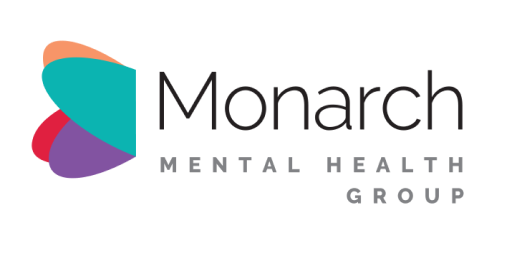Depression is a serious and complex mental health condition that affects millions of people around the world. It’s far more than feeling sad or going through a rough patch—it’s a condition that can have a profound impact on every aspect of daily life, from work and relationships to physical health. Understanding the warning signs and symptoms of depression is crucial for recognising when you or someone you care about may need professional support.
What Is Depression?
Depression is a mood disorder that causes persistent feelings of sadness, hopelessness, and a lack of interest or pleasure in activities. It can also affect how you think, feel, and handle daily activities.
While depression comes in different types and can affect anyone, it’s important to remember that it can be treated, even if medication hasn't been effective. Recognising the symptoms early can make a significant difference in getting the help and support you need.
Emotional and Psychological Symptoms
One of the hallmarks of depression is how it affects thoughts and emotions. Common emotional and psychological signs include:
- Persistent sadness or low mood: This isn’t just feeling down for a day or two—it’s a lasting sense of emptiness or sadness that won’t go away.
- Loss of interest or pleasure: Hobbies and activities that used to bring joy may feel meaningless or burdensome.
- Feelings of worthlessness or guilt: People with depression often feel an overwhelming sense of guilt or believe they’re a burden to others.
- Hopelessness or helplessness: It can feel as though there’s no way out of the darkness or that things will never improve.
- Difficulty concentrating: Trouble focusing or making decisions is common.
- Irritability or frustration: Depression can sometimes manifest as anger or being quick to lose patience.
Physical Symptoms
Depression doesn’t just affect how you feel emotionally—it can also have a significant impact on your body. Common physical signs include:
- Fatigue or low energy: Feeling drained, even after sleeping well, is a common sign.
- Changes in appetite or weight: Some people eat more and gain weight, while others lose their appetite and shed kilos unintentionally.
- Sleep disturbances: This can include trouble falling asleep, waking up too early, or sleeping much more than usual.
- Unexplained aches and pains: Headaches, stomach problems, and muscle pain can all be linked to depression.
Behavioural Changes
Changes in behaviour can be subtle or more pronounced when depression takes hold. Warning signs to watch for include:
- Withdrawing from social activities: People may isolate themselves from friends and family, feeling disconnected or unable to engage.
- Neglecting responsibilities: Work, school, or home life may start to suffer as motivation and energy decline.
- Risk-taking behaviour: Some people turn to alcohol, drugs, or reckless actions as a way to cope with emotional pain.
- Changes in personal hygiene: Losing interest in personal appearance or daily routines can be a sign that depression is interfering with life.
Severe Symptoms and When to Seek Help
While many people experience mild to moderate depression, severe depression can involve thoughts of self-harm or suicide. Warning signs include:
- Talking about wanting to die or end life
- Expressing feelings of being a burden to others
- Acting recklessly or engaging in self-destructive behaviour
- Giving away prized possessions or saying goodbye as if it’s final
If you or someone you know is experiencing these thoughts or behaviours, seek immediate help. Contact a crisis helpline like Lifeline on 131114 or your local emergency services on 000 for urgent support.
Depression Can Look Different for Everyone
It’s important to remember that depression doesn’t look the same in everyone. Symptoms can vary based on age, gender, and individual experiences:
- Men are more likely to experience irritability, anger, or risky behaviour, rather than sadness.
- Women may experience more feelings of guilt, worthlessness, or changes in appetite.
- Teens and young adults often display more irritability or anger rather than overt sadness.
- Older adults may struggle more with fatigue, aches and pains, or cognitive changes that mimic dementia.

What Causes Depression?
Depression is usually caused by a combination of factors:
- Biological factors: Genetics, brain chemistry, and hormonal imbalances can all play a role.
- Life experiences: Trauma, abuse, or ongoing stress can contribute to depression.
- Medical conditions: Chronic illnesses, pain, or other medical concerns can increase the risk.
- Personality: Certain personality traits, like low self-esteem or a tendency to worry, may increase vulnerability.
Understanding that depression is not a sign of personal weakness is key—it’s a real medical condition that can happen to anyone.
Getting Support and Treatment
The good news is that depression is treatable. Effective treatments include:
- Psychological therapies: Talking to a psychologist or psychiatrist about your feelings and thoughts can provide clarity and coping strategies.
- Medication: Antidepressant medications can help balance brain chemicals and relieve symptoms.
- Lifestyle changes: Regular exercise, a healthy diet, good sleep habits, and reducing alcohol or drug use can support recovery.
- Innovative treatments: For treatment-resistant depression, approaches like Transcranial Magnetic Stimulation (TMS) can offer new hope.
If you’re experiencing warning signs of depression, don’t wait for them to pass on their own. Reach out to your GP, a trusted mental health professional, or a supportive friend or family member. If you’re unsure where to start, speaking to a professional is often the first step towards relief.
Empower Yourself by Reach Out for Help
Recognising the warning signs and symptoms of depression is essential for early intervention and support. Depression is treatable, and with the right care and a supportive team, it’s possible to find relief and build a more hopeful future.
At Monarch Mental Health Group, our psychiatrist-led team is dedicated to helping people understand their symptoms and take meaningful steps towards recovery. If you’re struggling, speak to your GP about a referral to one of our clinics—our team and services are here to help you find a path forward.
FAQs
What physical symptoms can accompany depression?
Depression doesn’t just affect your mood—it can also cause physical symptoms like headaches, stomach problems, unexplained aches, and constant fatigue. Some people may experience weight changes due to altered appetite. These symptoms can make it harder to recognise that you’re experiencing depression, so it’s essential to look at both your mood and physical health. Get a referral to our clinics in Australia today to start your path to healing.
How do depression symptoms differ in men and women?
Men often experience depression through irritability, anger, or risky behaviour, rather than sadness. They may also withdraw from loved ones. Women are more likely to feel overwhelming sadness, guilt, or worthlessness, and they might also notice changes in sleep and appetite. Understanding these differences can help people recognise depression and seek help from mental health professionals when needed. Remember, depression can be treated and TMS therapy is available too.
Can lifestyle changes help with depression?
Yes! Regular exercise, eating well, and getting enough sleep can support your recovery. Mindfulness practices like meditation and yoga can also help you manage negative thoughts and improve your mood. While these changes can make a difference, they’re often most effective when combined with professional mental health treatments and support from a mental health professional or a clinic like Monarch Mental Health Group.
When should I seek help for depression?
If your symptoms last for more than two weeks, or if they’re affecting your ability to work, maintain relationships, or live your daily life, it’s time to seek help. If you’re experiencing thoughts of self-harm or suicide, contact emergency services on 000 or Lifeline crisis helpline on 131114 straight away. Early intervention can make a big difference in your recovery journey.
What treatments are available for depression?
Depression can be treated with psychological therapies (like CBT), medications (like antidepressants, nasal spray for depression), and innovative, drug-free treatments such as Transcranial Magnetic Stimulation (TMS). The best approach often involves a combination of these treatments tailored to your needs. At Monarch Mental Health Group, our psychiatrist-led team can create a personalised treatment plan that’s right for you, offering compassionate support every step of the way.
.png)
About The Author
Dr Ted Cassidy
Dr. Ted Cassidy is a psychiatrist and co-founder of Monarch Mental Health Group in Australia, which provides innovative treatments for depression, PTSD, and anxiety. Monarch Mental Health is recognized as Australia's first outpatient clinic offering assisted therapy and is the largest provider of outpatient magnetic stimulation therapy.

